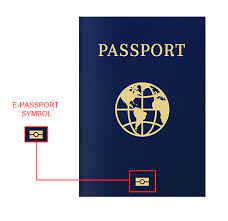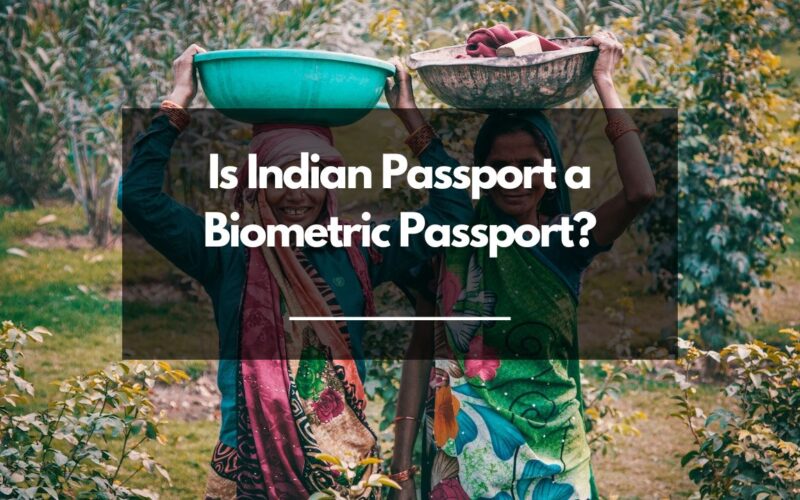As an Amazon Associate, I earn a small commission from qualifying purchases. Learn more about this.
Are you planning an overseas trip and wondering about the security features of your Indian passport? You’re not alone. With the rise of biometric data being used in various identity documents, it’s a common query. This article will answer the pressing question—Is the Indian passport a biometric passport?
Understanding How Biometric Passports Work
The concept of biometric passports, also known as e-passports, isn’t new but has gained significant attention in recent years, particularly as discussions around border security and identity theft have intensified.

These passports come embedded with a microprocessor chip, a mini databank if you will, that stores critical information about the holder.
But before we dive into whether the Indian passport fits this description, let’s take a closer look at what makes a passport “biometric.”
At its core, the biometric feature of these passports relies on unique physiological or behavioral characteristics that are nearly impossible to replicate or manipulate.
Physiological biometrics include facial recognition, fingerprint scanning, and iris recognition, among others. On the other hand, behavioral biometrics might encompass voice recognition or signature analysis, though these are less commonly used for passports.
Why is biometric data so critical? It’s about ensuring that the person holding the passport is actually the person it was issued to.
When you go through immigration at an airport, for example, your biometric data can be immediately accessed and verified by authorities. This makes for a streamlined, efficient, and more secure travel experience.
To break down the process, let’s consider a typical scenario: you arrive at an international airport and head to the immigration counter.
The officer takes your biometric passport and scans it.
The microchip is activated and communicates with the immigration system, providing immediate access to your stored biometric data.
Your face might be scanned or your fingerprint might be checked, essentially ‘matching’ the stored data with your real-time biometrics. If it’s a match, you’re good to go. If not, additional checks will be initiated.
It’s worth mentioning that the data on the chip is encrypted and secured, minimizing the risk of unauthorized access or tampering.
Furthermore, because the chip and the biometric information it holds are integrated into the passport booklet, it’s notably more difficult to forge or alter than traditional paper-based passports.
While the use of biometric passports is a global trend, not all countries have adopted it fully, and the extent to which they leverage this technology varies.
As we move through this blog post, we’ll explore where the Indian passport stands in the panorama of biometric technology and what it means for Indian citizens.
Related: Are the US Passports Biometric?
Is Indian passport a biometric passport?
The answer is yes and no.
The Indian government does issue biometric passports, but they’re not the standard. What you’ll usually get is a “Type P” passport, where ‘P’ stands for ‘Personal’. This type of passport includes your basic identification information but lacks the biometric features like an electronic chip.
However, diplomatic and official passports in India do contain these biometric features, and they’ve been in circulation for a while now.
Basically, they contain a microprocessor chip embedded in the cover, and this chip stores the personal details of the passport holder along with a digital photograph. This matches the International Civil Aviation Organization (ICAO) standards for e-passports, which means it fits the global description of a ‘biometric passport.’
The Indian government has also been working on rolling out biometric e-passports to ordinary citizens, with the first phase already having been tested as of 2021. These new e-passports will contain a microprocessor chip with your personal and biometric information, enhancing both security and convenience for international travel.
So why should you care?
Well, many countries are moving towards making biometric passports a requirement for entry, not just a convenience. It reduces the chances of identity theft and expedites the immigration process—imagine breezing through automated kiosks instead of standing in long queues!
Conclusion
So, to sum up, if you’re holding an ordinary Indian passport issued in recent years, it’s not a biometric one—yet. However, India is actively moving in the direction of adopting biometric passports for its citizens, making it only a matter of time before they become the new norm.







